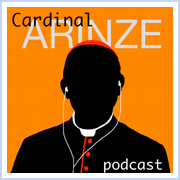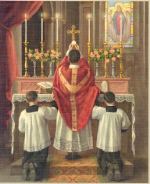Abortion and Communion
Here is a link to a great homily delivered by Father James Poumade, May 30, 2004 at Saint Mary Catholic Church, Alexandria, Virginia.
It has sufficient clarity of thought so as to understood by all. He says, in part:
I will not make recourse to the opinions of individuals, even among the US bishops, but only the express and uncontestable teaching of the Church.He continues by explaining and teaching what the Church teaches. (All emphasis mine)
Although some may be impatient about this, I ask only for your mature and courteous tolerance in the interest of greater understanding.
The first question that has to be addressed is: how do we balance faith with political obligations when the two clash?
There are two valid approaches. St Thomas More, royal chancellor of England and patron of our diocese, chose his faith over his political office when faced with a decision regarding the recognition of unlawful marriage, declaring that he was the king’s good servant – but God’s first. Pontius Pilate was personally opposed to executing Jesus, and may even have come to believe in Him, but didn’t wish to impose his belief on the crowd. He also, however, didn’t ask to go to Mass. He knew what his decision meant.
Those are two consistent courses of action. In each of them, the officeholder made a decision, and accepted its consequences. It is inconsistent to claim that one can reject the faith publicly and still be Catholic. Those who try to do so are the only ones truly guilty of mixing politics and religion. Being a practicing Catholic means following the will of God as revealed to us through Scripture and Tradition and the teaching authority of the Church.
Link here.









